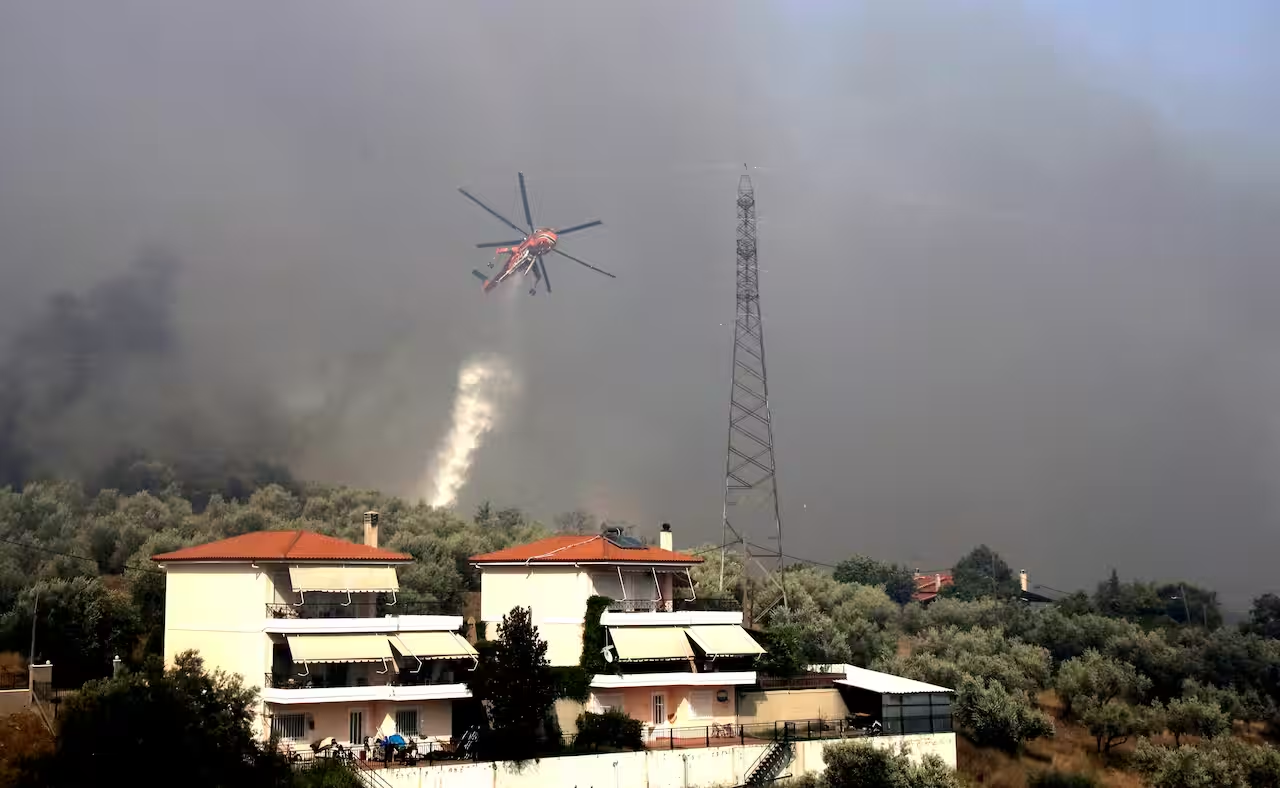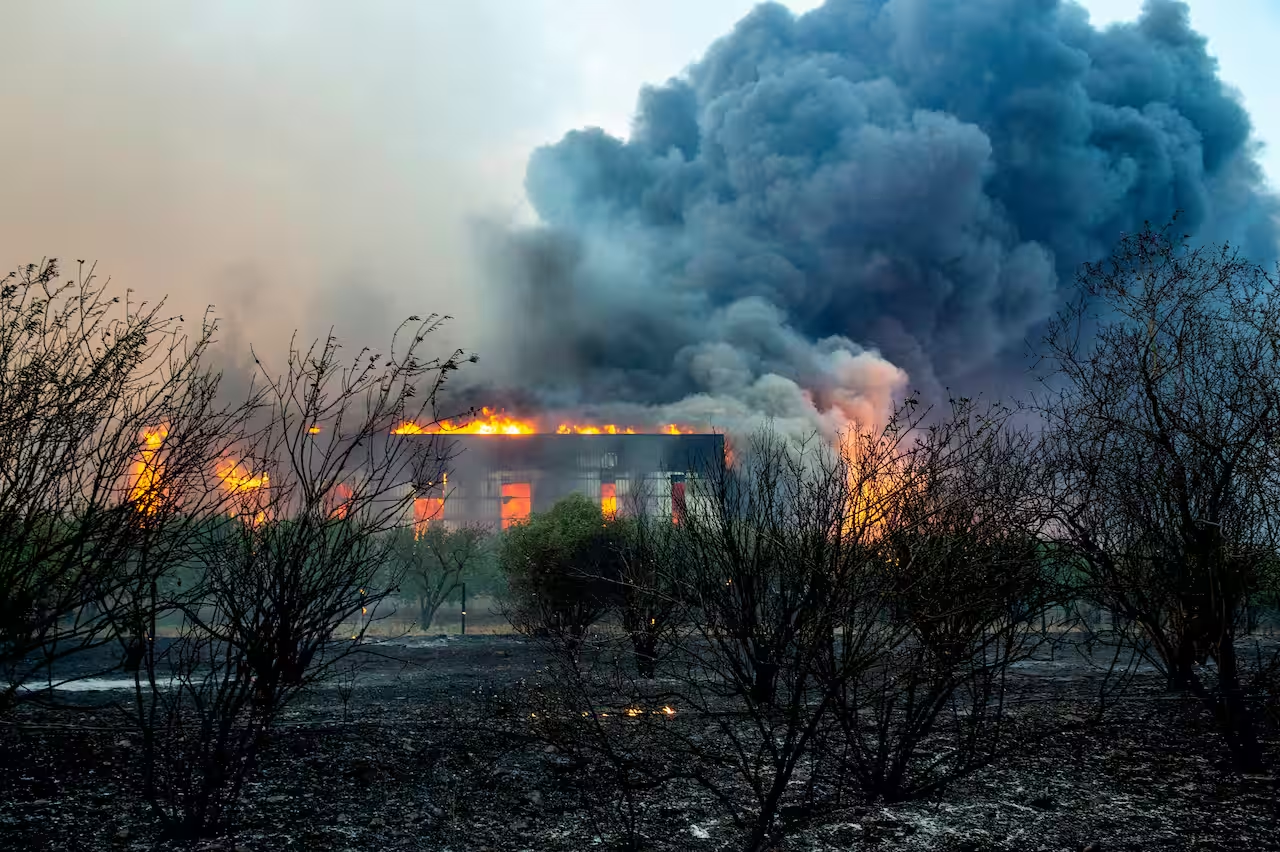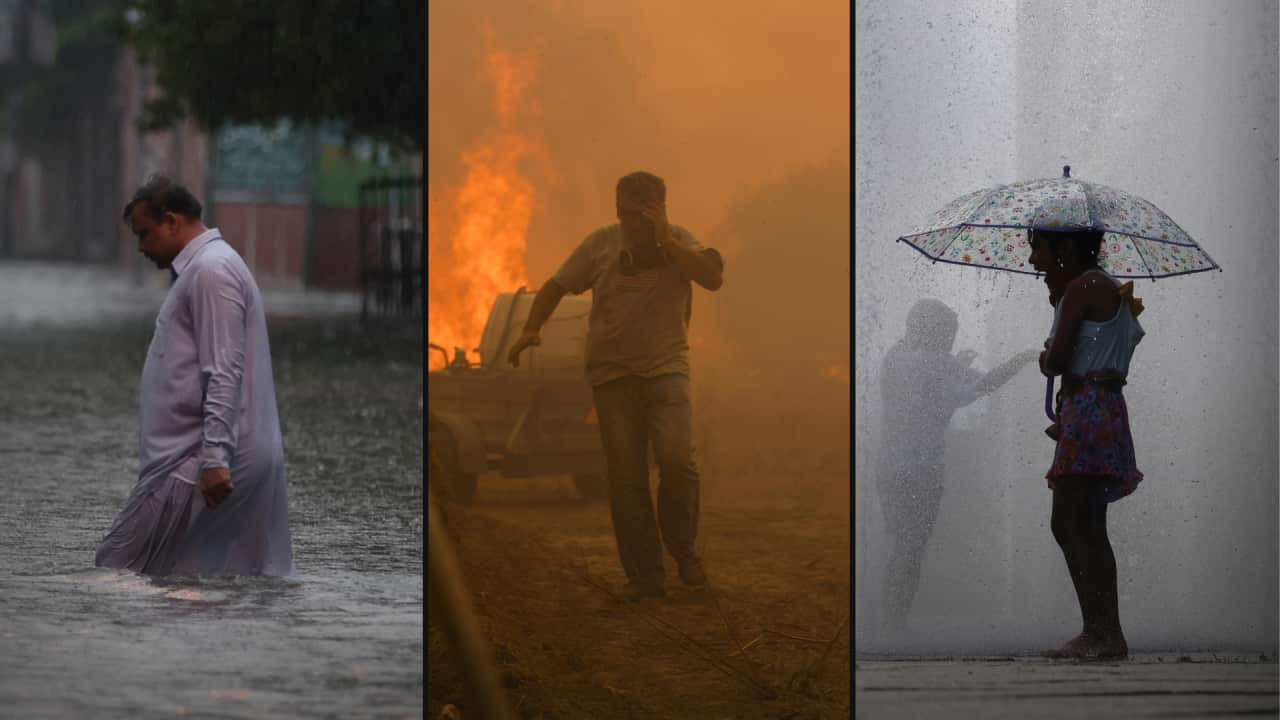Key Points
- The United Nations chief says "global boiling has arrived".
- His warning comes as climate agencies anticipate July will be the world's hottest month on record.
- Wildfires have been raging in parts of the world, while others have been hit by floods.
July 2023 is set to upend previous heat benchmarks, United Nations secretary-general Antonio Guterres says, after scientists stated it was on track to be the world's hottest month on record.
The UN World Meteorological Organisation (WMO) and European Union's Copernicus Climate Change Service also said in a joint statement it was "extremely likely" July 2023 would break the record.
"We don't have to wait for the end of the month to know this. Short of a mini-Ice Age over the next days, July 2023 will shatter records across the board," Guterres said in New York.
"Climate change is here, it is terrifying, and it is just the beginning," he told reporters.
"The era of global warming has ended; the era of global boiling has arrived".

United Nations secretary-general Antonio Guterres says July 2023 is set to upend previous heat benchmarks. Source: AAP
This month's mean global temperature is projected to be at least 0.2C warmer than July 2019, the former hottest in the 174-year observational record, according to European Union data.
The margin of difference between now and July 2019 is "so substantial that we can already say with absolute certainty that it is going to be the warmest July," Leipzig climate scientist Karsten Haustein said.


Locals trying to extinguish a wildfire burning in Gennadi village, on the Aegean Sea island of Rhodes, southeastern Greece. Source: AAP, AP / Petros Giannakouris

A firefighting helicopter drops water during a fire that broke out in the town of Lamia, Greece, on Wednesday. Source: AAP, EPA / Aris Martakos

People evacuate by boat during a wildfire at Nea Anchialos, near Volos, Greece on Thursday. Source: AAP, EPA / Ikonomou Vassilis
The WMO has confirmed that the first three weeks of July have been the warmest on record.
Commenting on the pattern, Michael Mann, a climate scientist at the University of Pennsylvania, said it was clear by mid-July that it was going to be a record-warm month, and provided an "indicator of a planet that will continue to warm as long as we burn fossil fuels".


While some parts of the world burned in July, others experienced heavy rains and floods. Pictured here is a rescue workers and their dog at the site of a landslide caused by heavy rain in Yecheon, South Korea on 16 July. Source: AAP, AP / Yun Kwan-shick

Nagma Rani mops the floor of her house that was inundated by floodwater from River Hindon following excessive rains, in Greater Noida, outskirts of New Delhi, India, on Thursday. Source: AAP, AP / Altaf Qadri

Motorcyclists drive and people wade through a flooded roadway caused by heavy monsoon rainfall in Lahore, Pakistan, on Wednesday. Source: AAP, AP / K.M. Chaudary
But this July it has surged to about 17C.
What's more, "we may have to go back thousands if not tens of thousands of years to find similarly warm conditions on our planet," Haustein said.


Haustein's analysis is based on preliminary temperature data and weather models, including forecast temperatures through the end of this month, but validated by unaffiliated scientists.
"The result is confirmed by several independent datasets combining measurements in the ocean and over land. It is statistically robust," Piers Forster, a climate scientist at Leeds University, said.

China has been experiencing sweltering heating. Temperatures in a northwest China township soared as high as 52.2C, breaking a record in the country. Source: AAP / Andy Wong/AP

A plastics factory on fire during a wildfire at Sesklo village, in Volos, Greece, on Tuesday. Source: AAP, EPA / Ikonomou Vassilis

Forest guards contain a fire that was reaching nearby houses in Castellammare, Trapani, on the Italian island of Sicily on Tuesday. Source: Getty, LightRocket / SOPA Images
What disasters have occurred during record temperatures?
Thousands of tourists fled and many more suffered baking heat across the US southwest.

Flames from the Donnie Creek wildfire burn along a ridge top north of Fort St. John, British Columbia, Canada, on 2 July. Source: AAP, AP / Noah Berger

A torched house and car in the town of Oliveri in the province of Messina, Sicily, on Wednesday, after an overnight fire raged across the district. Source: Getty, AFP / Giovanna Isolino

Vehicles and debris swept away from flooding are seen in the city of Kurume, Fukuoka prefecture, Japan, on 10 July. Source: Getty, AFP / Kazuhiro Nogi
Canadian wildfires burned at an unprecedented pace while France, Spain, Germany, and Poland sizzled under a major heatwave, with the mercury climbing into the mid-40s on the Italian island of Sicily, part of which is engulfed in flames.
Marine heatwaves have unfolded along coastlines from the US to Australia, raising concerns about coral reef die-off.
Meanwhile, record rainfall and floods have deluged South Korea, Japan, India and Pakistan.

France, Spain, Germany, and Poland have sizzled under a major heatwave. In this picture, children cool off and play at a fountain in Madrid, Spain. Source: Getty / Pablo Blazquez Dominguez

It's not just humans who are suffering in the New York City heat. Source: Getty / Ed Jones/AFP
Has El Niño played a role?
The planet is in the early stages of , borne of unusually warm waters in the eastern Pacific.
El Niño typically delivers warmer temperatures around the world, doubling down on the warming driven by human-caused climate change, which scientists said this week had played an "absolutely overwhelming" role in July's extreme heatwaves.
While El Niño's effects are expected to peak later this year and into 2024, it "has already started to help boost the temperatures," Haustein said.
July is traditionally the hottest month of the year, and the EU said it did not project August would surpass the record set this month.









